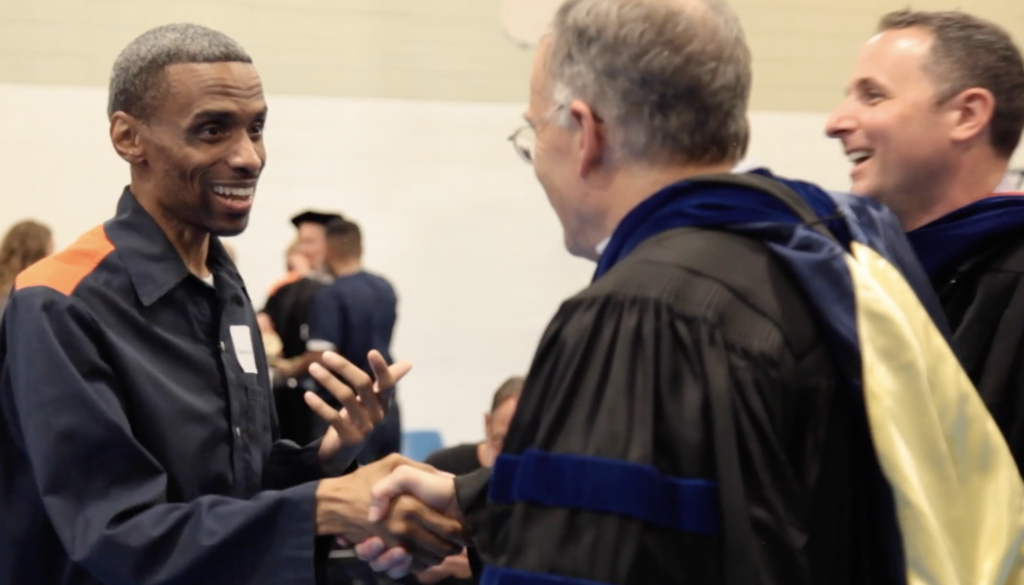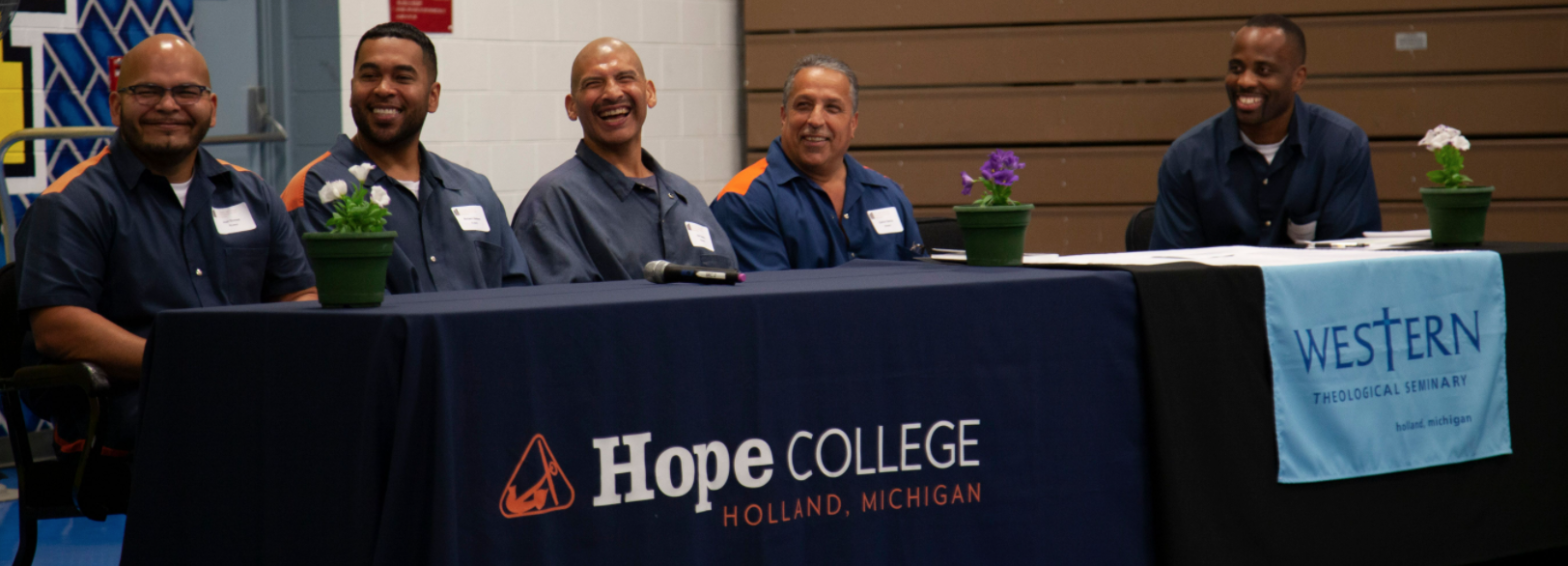I’ve sometimes wondered why the incarcerated students of the Hope-Western Prison Education Program are so remarkably committed to their college studies. Anyone who has ever spoken with them can’t help but come away from the conversation deeply impressed by their passion for learning. This overwhelming sense of enthusiasm is perhaps most acutely felt by their professors, who are commonly changed in fundamental, surprising ways by the experience.

Perhaps HWPEP students are simply older and more mature than traditional students. People in the forties and fifties have a greater trove of experiences that help them put their life circumstances into perspective than the average 18-22 year-old college student does. Perhaps older, incarcerated students see the value in their college education in ways that traditional college students will eventually recognize, but not just yet.
Or it could be that HWPEP students experience a newfound sense of self-efficacy as a result of their college-going. For many, their lives have been like arid deserts — places where truth, beauty, and goodness are not completely absent, but can be harder to find. Maybe learning that they are good at something that is true, good, and beautiful is why they blossom with such fecundity.
But increasingly I wonder if their enthusiasm — their joy — is based on something else — a sense of belonging. A sense of membership. Many HWPEP students have lived the better part of their lives without a well-formed vision of the future — educational or otherwise. College has been, at best, a hazy, dimly understood theory outside their experience or that of their families. To quote Kant, “Out of the crooked timber of humanity, no straight thing was ever made.” The crooked timber of HWPEP students is straightening, and beautifully. Kant would be impressed.
In his wonderful Port William stories Wendell Berry describes those living and working and dying among the Kentucky hills hard by the Ohio River as a “membership.” He crafts their lives in ways that gives us the impression that the people of that membership belong to each other. And it is in that belonging that they find and embody love — of each other and themselves.
“We are members of each other…The difference ain’t in who is a member and who is not, but in who knows it and who don’t.”
Burley Coulter – The Wild Birds
As Reinhold Niebuhr reminds us “Nothing that is worth doing can be achieved in our lifetime; therefore we must be saved by hope. Nothing which is true or beautiful or good makes complete sense in any immediate context of history; therefore we must be saved by faith. Nothing we do, however virtuous, can be accomplished alone; therefore we are saved by love.” And love is discovered by membership.
As we continue through the early years of the Hope-Western Prison Education Program we give thanks for the membership it offers for our students. And for the marvelous ways that membership is making all the difference in their lives — for now and for eternity.


